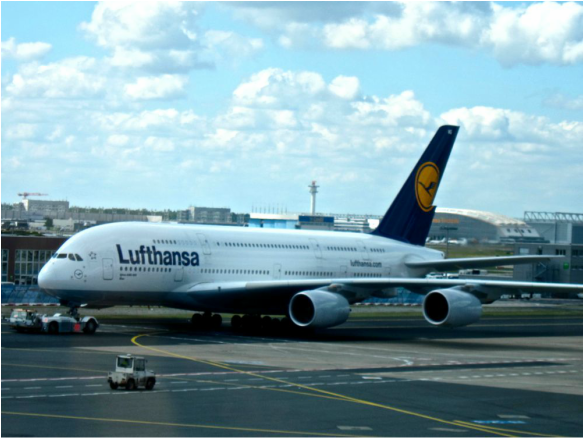How to Choose Travel Insurance
How many of you hit the road without any insurance coverage? You often take this for granted, especially when it is just a short trip. Without travel insurance, your trip may be more costly.
Travel Insurance: The Cost of Doing Nothing is High
You hope nothing will happen. But, without travel insurance, you are tempting fate, especially if your spouse and kids are with you, too. This is just not a good idea. Doing nothing may be very costly.
Travel insurance often provides professional advice in case of health problems abroad, covers all your medical expenses, or reimburses you for part of them.
However, lots of travel insurance today covers more than that. It depends on what you buy.
Some have a trip insurance provision as well. This insurance includes lost or delayed luggage, delays, trip disruptions, emergency medical evacuation and repatriation, and more. You can also buy coverage for your pets, even for travel agencies' failure to handle your trip.
In other words, a whole new plethora of choices that often leave you rattled. But take your time with the options. Go over your own needs and get what you require.
You hope nothing will happen. But, without travel insurance, you are tempting fate, especially if your spouse and kids are with you, too. This is just not a good idea. Doing nothing may be very costly.
Travel insurance often provides professional advice in case of health problems abroad, covers all your medical expenses, or reimburses you for part of them.
However, lots of travel insurance today covers more than that. It depends on what you buy.
Some have a trip insurance provision as well. This insurance includes lost or delayed luggage, delays, trip disruptions, emergency medical evacuation and repatriation, and more. You can also buy coverage for your pets, even for travel agencies' failure to handle your trip.
In other words, a whole new plethora of choices that often leave you rattled. But take your time with the options. Go over your own needs and get what you require.
For lucky people like some of you, your employer ensures you and your family are covered. But even here, review the fine details.
Take the time to ask your questions to understand the coverage better, and if there are gaps, purchase coverage for the holes, for heaven's sake. For many, you have to manage on your own. So start digging.
Take the time to ask your questions to understand the coverage better, and if there are gaps, purchase coverage for the holes, for heaven's sake. For many, you have to manage on your own. So start digging.
1. Review your current insurance coverage Make a thorough list of the things your current coverage takes care of. Identify what they cover if you are outside your country when you have your family with you.
When my husband had surgery in Hanoi, our country's national healthcare insurance covered some of our expenses. Ensure you have all the proper receipts and documentation and submit these when you return to your country.
When my husband had surgery in Hanoi, our country's national healthcare insurance covered some of our expenses. Ensure you have all the proper receipts and documentation and submit these when you return to your country.
Better still is, before you leave, know what your insurance requires for claims to some of the benefits so you can submit the necessary papers when you meet any emergency. Getting these papers back home is often complicated and takes time.
- Start with your health card. Find out what your government will pay for when traveling abroad. When you do this, remember to check out your country's embassy website in the country you are visiting and register. Some governments repatriate their citizens when necessary. You can always depend on your embassy for help, so it is essential to have their address and telephone number.
- Aside from your national health coverage, your credit cards also give you range when you use your card to book your air tickets. List down the coverage you get from your credit cards. Without your realizing it, they have long ago canceled coverage for what you thought you were covered when you signed up for the first card. How many of you read the fine lines your credit card company sends you? Know the number of days they will cover you and the amount of coverage—also, the circumstance when you can claim benefits. Take the time.
- Check your current policy agreements. Note down what they cover and how much you can claim per item. Sometimes, reading acceptable words turns you off the phone and asks questions. If you are still waiting for clear responses, it is time for a new insurance package! You don't want to incur damage in your car rental only to find out that you have not opted for this to be covered.
- Find out coverage provided by membership in clubs or other organizations. Make sure all your information is current. Do NOT assume anything. You cannot believe what these policies do NOT cover. Just a hint of vagueness: you are history! Some of these policies tend to cover everything that will never happen! Beware, especially if you have employer-based insurance. Most likely, the lowest bidder won the contract, and the odds against more than a skinny coverage are very long.
2. Identify the gaps in your existing insurance coverage
- List the things you need for international travel
- Make sure that your "must be insured" items are adequately covered in your current policy and the coverage extends to trips abroad. Verify the number of days or weeks abroad that these cover as well as the amount they are willing to pay.
- Start a list of the items in your "must be covered" tally that are not included in your existing policies. Look into restrictions and gaps in coverage and add your recommendations to your list.
- Next, make a list of the extra coverage you want. Once you have completed the list, start your research. The options can be almost infinite. Many offers are in packages such as annual or per trip, family or individual and basic or premium. Make sure you spend time understanding the packages before you commit yourself.
3. Do your research on travel insurance you need
Armed with your list of items you want covered, call up your travel agent, your friends who travel a lot, insurance companies and get their recommendation. Look up online resources. See what is on offer for your list.
Remember, too, that the country you are visiting and the duration of your stay abroad will have a bearing on your coverage. Ask what happens if you extend your stay. Will they charge you more? What about civil insurrection (yes, it can happen without much warning) or military interventions? Are these covered? If not, can you purchase special coverage for this?
Do they have their own hospitals or medical clinics in the country you are going to? What hospitals will they bring you to in case of an emergency? Do they have their own network of hospitals, walk-in clinics or medical professionals in the country you are going to?
What happens if you need to be evacuated or repatriated? What about your spouse? Your child? If you are getting a family package, are there restrictions around travel by individual family members?
Armed with your list of items you want covered, call up your travel agent, your friends who travel a lot, insurance companies and get their recommendation. Look up online resources. See what is on offer for your list.
Remember, too, that the country you are visiting and the duration of your stay abroad will have a bearing on your coverage. Ask what happens if you extend your stay. Will they charge you more? What about civil insurrection (yes, it can happen without much warning) or military interventions? Are these covered? If not, can you purchase special coverage for this?
Do they have their own hospitals or medical clinics in the country you are going to? What hospitals will they bring you to in case of an emergency? Do they have their own network of hospitals, walk-in clinics or medical professionals in the country you are going to?
What happens if you need to be evacuated or repatriated? What about your spouse? Your child? If you are getting a family package, are there restrictions around travel by individual family members?
4. Compare Coverage and Costs of the Various Insurance Offers
Identify the top 3 providers from your research. Study each provider further by ascertaining some of the data. Try out telephone numbers to make sure you get immediate response and test how they handle your inquiries.
Ask about the plans they offer. If you travel frequently, it might be cheaper for you to purchase an annual plan. Or, a family plan. With some packages, you may have access to a telephone help line with an operator speaking your own language who can help you find local medical facilities. This is important. Toll-free numbers often don't work overseas so ask for a line you can call from overseas. Better still, get a name you can directly contact. Even better, a direct line for their medical facility or contact in the country you are going to. Lock this down before you leave.
Identify the top 3 providers from your research. Study each provider further by ascertaining some of the data. Try out telephone numbers to make sure you get immediate response and test how they handle your inquiries.
Ask about the plans they offer. If you travel frequently, it might be cheaper for you to purchase an annual plan. Or, a family plan. With some packages, you may have access to a telephone help line with an operator speaking your own language who can help you find local medical facilities. This is important. Toll-free numbers often don't work overseas so ask for a line you can call from overseas. Better still, get a name you can directly contact. Even better, a direct line for their medical facility or contact in the country you are going to. Lock this down before you leave.
5. Purchase your Travel Insurance
Unless you have lots of money, get the insurance you need. The little things you can afford, don't worry about these. Make sure you have the coverage for the big ticket items. Read reviews online on the coverage insurances provide on these items and choose appropriately. Peace of mind is important to enjoying your travel and stay abroad.
Prepare your questions well before you meet with the insurance company you have identified. Know that there are many types of travel insurance being offered in the market.
Some offer comprehensive coverage which includes trip and medical coverage as well as evacuation and repatriation. Make sure you understand what you should look into before you purchase your coverage.
Unless you have lots of money, get the insurance you need. The little things you can afford, don't worry about these. Make sure you have the coverage for the big ticket items. Read reviews online on the coverage insurances provide on these items and choose appropriately. Peace of mind is important to enjoying your travel and stay abroad.
Prepare your questions well before you meet with the insurance company you have identified. Know that there are many types of travel insurance being offered in the market.
Some offer comprehensive coverage which includes trip and medical coverage as well as evacuation and repatriation. Make sure you understand what you should look into before you purchase your coverage.
When you plan to stay longer in an overseas country, it is sometimes better to purchase the insurance in that country. This is true of international insurance providers.
Sometimes, you can save money as countries are classified into categories by insurance companies and chances are the country you are going to stay in may be classified in a much cheaper category than your own country.
Review your coverage regularly an take notice of changes in your coverage.
Sometimes, you can save money as countries are classified into categories by insurance companies and chances are the country you are going to stay in may be classified in a much cheaper category than your own country.
Review your coverage regularly an take notice of changes in your coverage.
Check out other travel articles:



